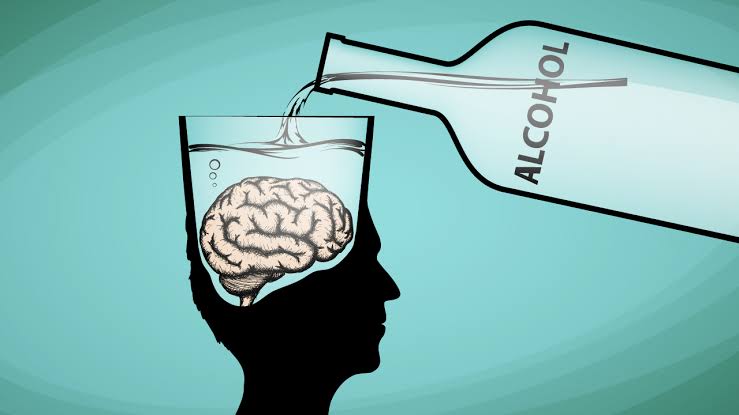- Get link
- X
- Other Apps
JUST IN
- Get link
- X
- Other Apps

Alcohol interferes with the brain's communication pathways and can affect the way the brain looks and works. Alcohol makes it harder for the brain areas controlling balance, memory, speech, and judgment to do their jobs, resulting in a higher likelihood of injuries and other negative outcomes.
Alcohol-Induced Blackouts
Alcohol misuse can cause alcohol-induced blackouts. Blackouts are gaps in a person’s memory of events that occurred while they were intoxicated. These gaps happen when a person drinks enough alcohol that it temporarily blocks the transfer of memories from short-term to long-term storage—known as memory consolidation—in a brain area called the hippocampus.
Alcohol Overdose
Continuing to drink despite clear signs of significant impairments can result in an alcohol overdose. An alcohol overdose occurs when there is so much alcohol in the bloodstream that areas of the brain controlling basic life-support functions—such as breathing, heart rate, and temperature control—begin to shut down. Symptoms of alcohol overdose include mental confusion, difficulty remaining conscious, vomiting, seizure, trouble breathing, slow heart rate, clammy skin, dulled responses (such as no gag reflex, which prevents choking), and extremely low body temperature. Alcohol overdose can lead to permanent brain damage or death.
Alcohol Use Disorder
As individuals continue to drink alcohol over time, progressive changes can occur in the structure and function of their brains. These changes can compromise brain function and drive the transition from controlled, occasional use to chronic misuse, which can be difficult to control and lead to alcohol use disorder (AUD). Individuals with moderate to severe AUD may enter a cycle of alcohol addiction. The extent of the brain’s ability to return to normal following long-term sobriety is not fully understood, but a growing number of studies indicate that at least some AUD-induced brain changes—and the changes in thinking, feeling, and behaving that accompany them—can improve and possibly reverse with months of abstinence from drinking. (More detail about the neuroscience of AUD is provided in the Neuroscience: The Brain in Addiction and Recovery section of The Healthcare Professional’s Core Resource on Alcohol.) you
SIDE EFFECT OF ALCOHOL
Alcohol makes it harder for the brain areas controlling balance, memory, speech, and judgment to do their jobs, resulting in a higher likelihood of injuries and other negative outcomes. Long-term heavy drinking causes alterations in the neurons, such as reductions in their size.

Comments
Post a Comment
Let know your comments